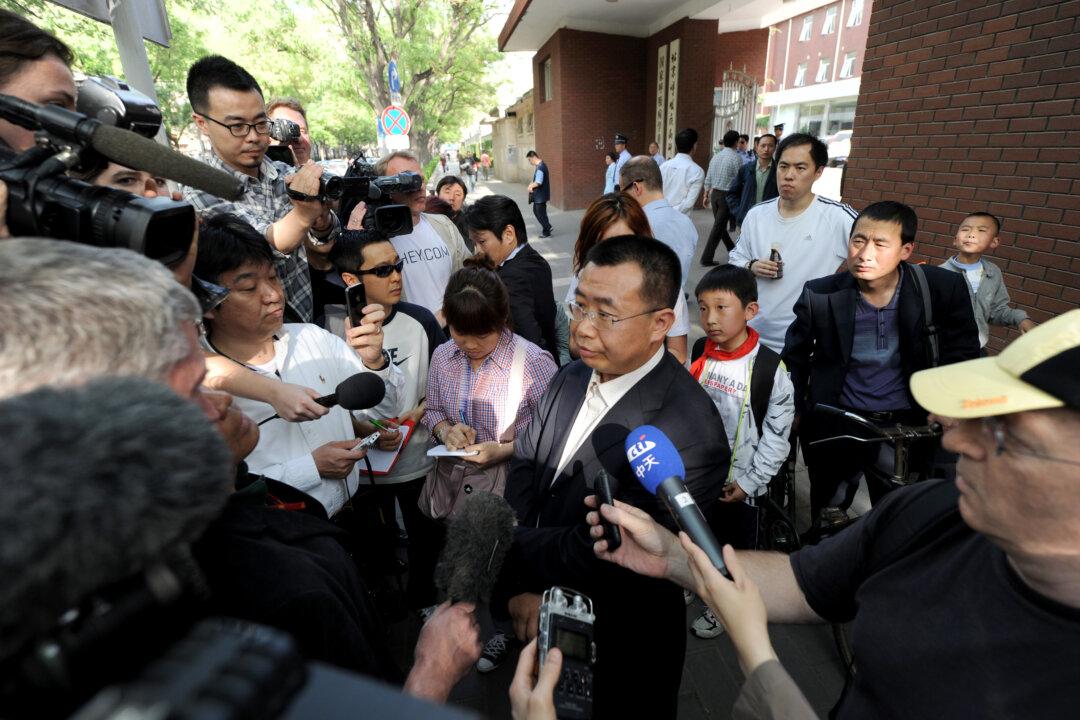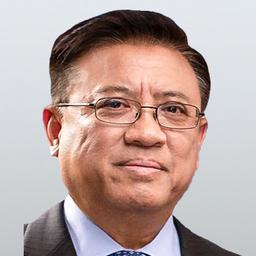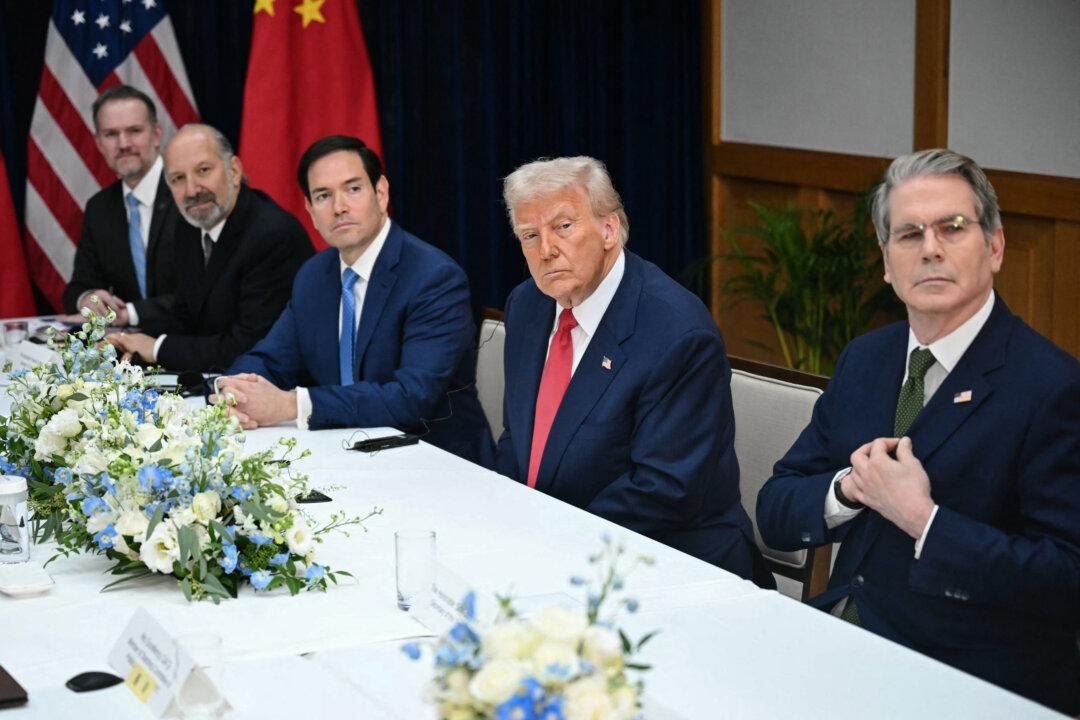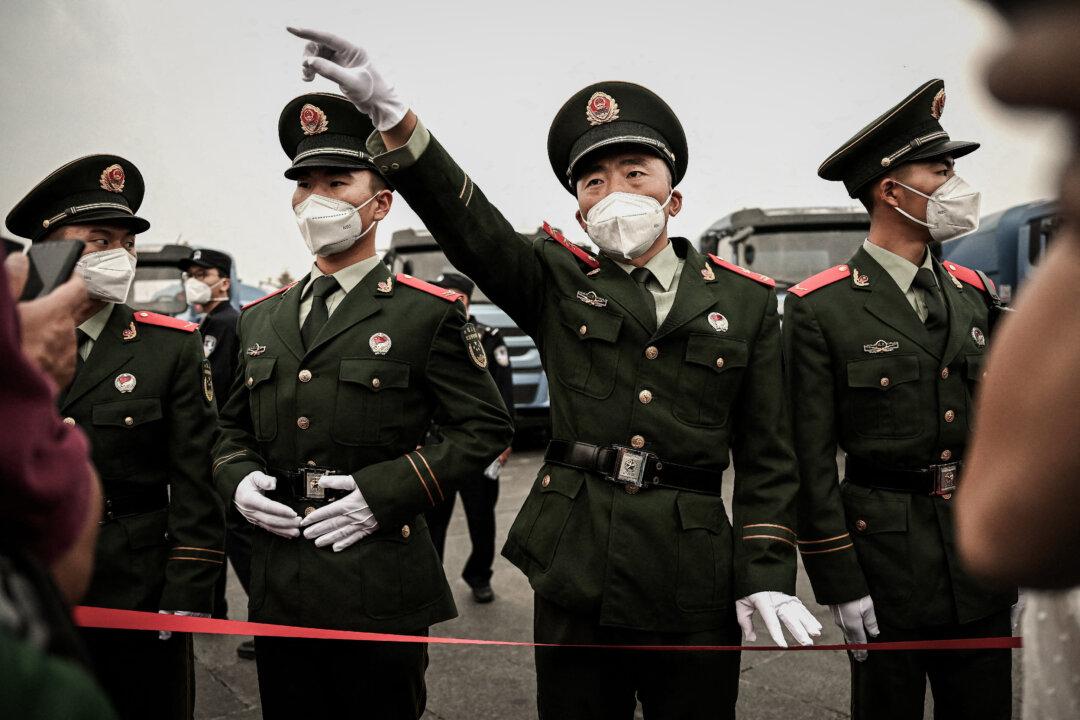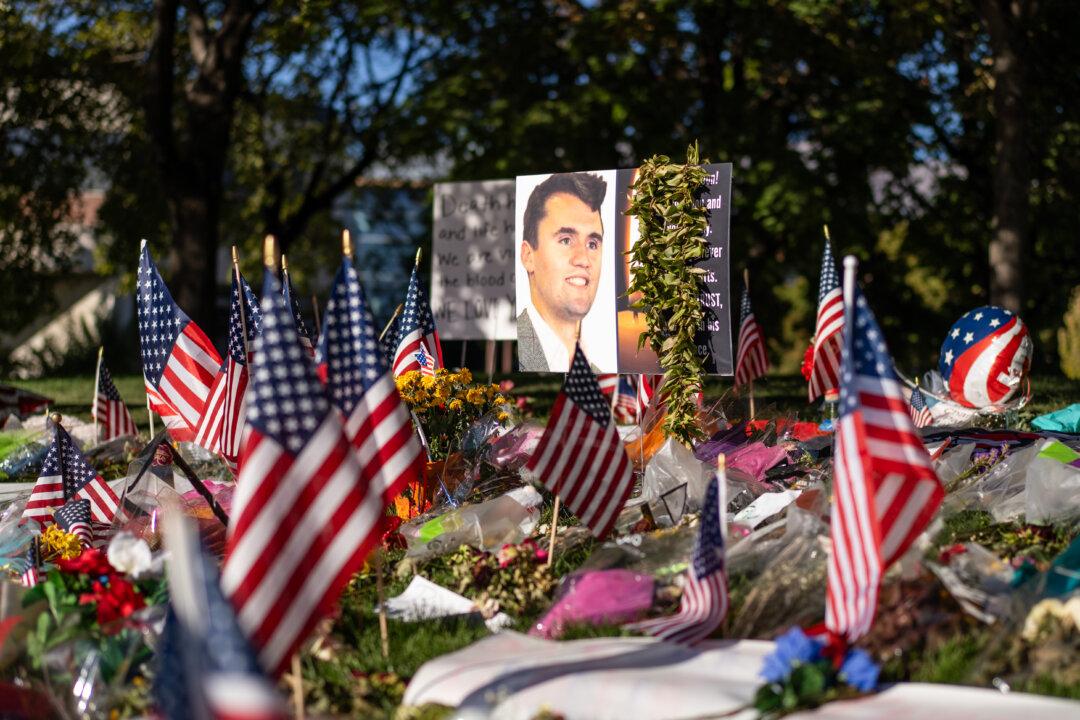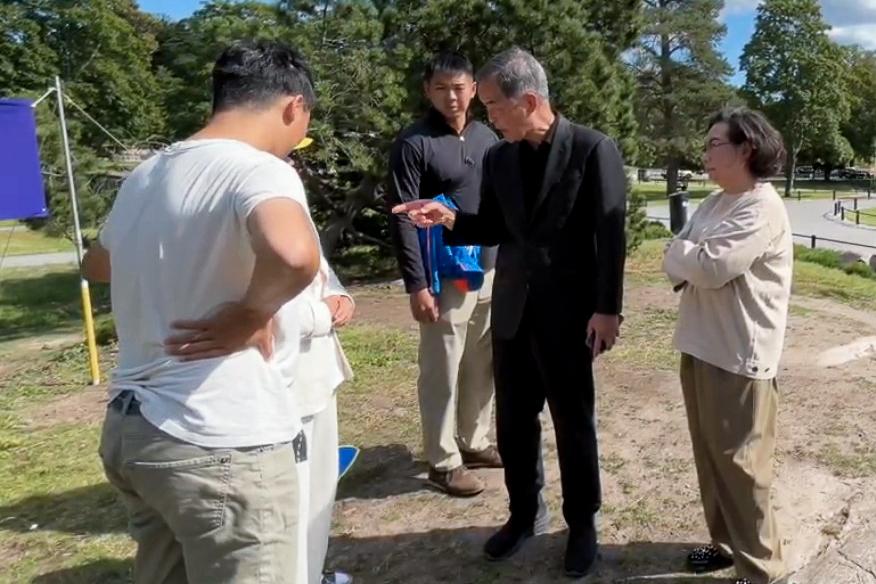Seeking justice in China requires being willing to pit weak flesh and blood against the steel of oppression. Four human rights lawyers who took that risk at a remote spot in the far north of China have focused the nation’s attention on the secret, extra-legal hellholes used to terrorize the faithful, the dissident, and the unlucky in China.
On March 20, Tang Jitian, Jiang Tianyong, Zhang Junji, and Wang Cheng came to the Jiansanjiang brainwashing center in Heilongjiang Province seeking the release of their clients, Falun Gong practitioners who had been illegally imprisoned for their beliefs. The lawyers were joined by 30 family members.
Even though these four lawyers are veteran human rights defenders who have experienced harassment, suspension of their licenses, and even beatings, they had no particular reason to expect arrest. In the last four months, they had made this pilgrimage twice before. Still, they knew the risks.
Jiang Tianyong had prepared for his work as a rights defense lawyer by writing the following statement: “Most of those who can advocate for me are locked up. Now, it’s my turn. I authorized a power of attorney yesterday.
“Now I declare: (1) I will never commit suicide. My death can only be murder. (2) I have hired a lawyer. I will not refuse a lawyer. I will reject any lawyer appointed by the authorities. (3) I am flesh and blood. Because I have had experience, I know that I am not that strong. Any giving up, repentance, or promise made when I am not free is invalid.”
Arrests
The morning of March 21, the four lawyers were taken to the police station. While uniformed policemen watched, plainclothes men beat them severely. Zhang Junjie suffered three broken bones. When released five days later, he said the other three lawyers, who are still detained, have suffered much worse torture.
News of the arrests spread through the Internet. More lawyers, including those representing the four arrested attorneys, and other activists rushed to Jiansanjiang from other areas. When the lawyers’ requests to meet their clients were rejected, they started fasting in front of the detention center to protest.
China’s social media cheered on the hunger strikers. More people went to Jiansanjiang, and even more gathered locally to support the lawyers and post their photos online.
On March 29, the authorities struck again. The police suddenly took away about 20 people staying in front of detention center and beat many of them, including lawyers.
What had been a local ruckus has gone national. The domestic security forces are checking the hotels and visiting the homes of activists outside Heilongjiang Province and asking about the Jiansanjiang incident.
Meanwhile, the Chinese Communist Party’s Central Propaganda Department and State Internet Information Office have sought to put the genie back in the bottle and throttle, for now, the rising popular indignation. They have issued orders to censor all related information.
Brainwashing Center
Jiansanjiang is a strange name that most Chinese people had never heard of before the events of the last two weeks. It is now notorious—the name that stands for the vast network of brainwashing centers across China.
The Falun Gong practitioners detained in Jiansanjiang, whom the lawyers had come to defend, are the victims of a political campaign.
In 1999, Jiang Zemin, the then-head of the Chinese Communist Party (CCP), feared how 100 million people—a number greater than the membership of the CCP—had taken up this qigong practice and its principles of truthfulness, compassion, and tolerance.
Jiang also feared that the Chinese people would prefer Falun Gong’s traditional moral teachings to the CCP’s atheist ideology. And so, without even putting a law on the books making Falun Gong illegal, Jiang launched the campaign to eradicate the practice.
It should not be surprising that this extra-legal campaign uses extra-legal measures. The labor camps, whose inmates could be sentenced without a court order, were long recognized as the regime’s main weapon against Falun Gong.
After the tortures of Falun Gong practitioners and others at the Masanjia Labor Camp were publicized, the entire reform-through-labor camp system was said to be officially closed by the end of 2013.
With the labor camps abandoned, or at least given new names, there have been increasing reports of Falun Gong practitioners being sent to “legal education centers,” like Jiansanjiang, which are commonly known as brainwashing centers.
These centers have existed alongside the labor camps and have played a major role in the persecution of Falun Gong all along. While the labor camps, though, were public institutions, the centers operate in secret and off the books.
The Jiansanjiang center is run by various Communist Party organs of the Heilongjiang Land Reclamation Bureau (HLRB). However, no one can find any official trace of the Jiansanjiang center in Party or state records.
The main business of this ghostly institution is to force Falun Gong practitioners to give up their beliefs. It exists to destroy what an individual cherishes most in life, the thought of what is good and right in the world.
Any measure that achieves this goal is permitted. This means even, or especially, torture. While the CCP calls these places legal education centers, they might better be called “torture education centers.”
Jiansanjiang has no legal existence; it persecutes those guilty of no crime; it does so without legal authority, using measures forbidden by law. After a long night on watch outside Jiansanjiang, the second group of lawyers was told by the staff inside the detention center: “The law serves for special occasions. The law needs to listen to the boss.”
Interest Group
HLRB, the region where Jiansanjiang is located, is not well-off, and the center serves as an important source of income for the local authorities.
According to a complaint to the president of the Supreme Procuratorate signed by 108 citizens, the family members were forced to pay 10,000 yuan each month for each Falun Gong practitioner detained at Jiansanjiang.
That is a king’s ransom in China: 10,000 yuan equals US$1,608. A Peking University survey found that the annual average family income in China in 2012 was US$2,100.
Wu Lei is one of the second group of lawyers who protested in front of the detention center. He visited local residents and was told that the brainwashing center was the most hated place.
Authorities randomly capture and detain local residents who are, in effect, used to blackmail their relatives. If the center does not have enough Falun Gong practitioners, the authorities simply go out and round up other citizens.
Those dependent on Jiansanjiang form a powerful interest group in the local CCP. Unfortunately, this interest group is not only at Jiansanjiang. It’s all over China, from the Central CCP to every Party branch at all levels.
For these creatures, persecuting Falun Gong and abusing human rights is a source of profit, and expanding the scope of the abuses is a good thing.
Unchanging Policy
In December 2013, Li Dongsheng, the head of the secretive organization tasked with persecuting Falun Gong, was put under investigation by the CCP. His career is over, and the interesting question now is, what charges will be brought against him when he eventually stands trial?
For the past year, the cronies of Zhou Yongkang, the former domestic security czar who helped push forward the persecution of Falun Gong, have been arrested one after another. There has been no official announcement of Zhou’s arrest, but there have been hints for months now that he is under the Party’s control.
These developments, along with the ending of the labor-camp system, might suggest the persecution of Falun Gong is being wound up. The events in Jiansanjiang tell a different story.
The CCP has a poor track record when it comes to rectifying violations of human rights. Any change of Party policy involving persecuting China’s people has to be decided at the level of the Politburo or one step higher, at the level of the Politburo Standing Committee.
Such a reversal has only happened once, in the case of the Cultural Revolution. And the only reason for that reversal was the Cultural Revolution had targeted the Party itself.
With this history, the Jiansanjiang local authorities are emboldened. The Chinese Constitution and the laws of China mean nothing to them, as they dare to illegally detain and beat lawyers in broad daylight, while the whole world watches. They know that only the Party’s policy counts. That’s the reality in China.
Trying to stop the evil done by the CCP, at Jiansanjiang and throughout China, takes risk and courage. For almost 15 years, Falun Gong practitioners have calmly endured all sorts of abuse in order to ask the Chinese people not to support the evil the CCP has done.
Now, more and more rights lawyers and other activists are also choosing to take the risk of opposing the CCP’s misdeeds. Such courage demands admiration, and support.
